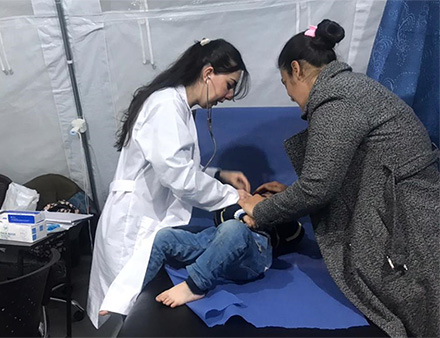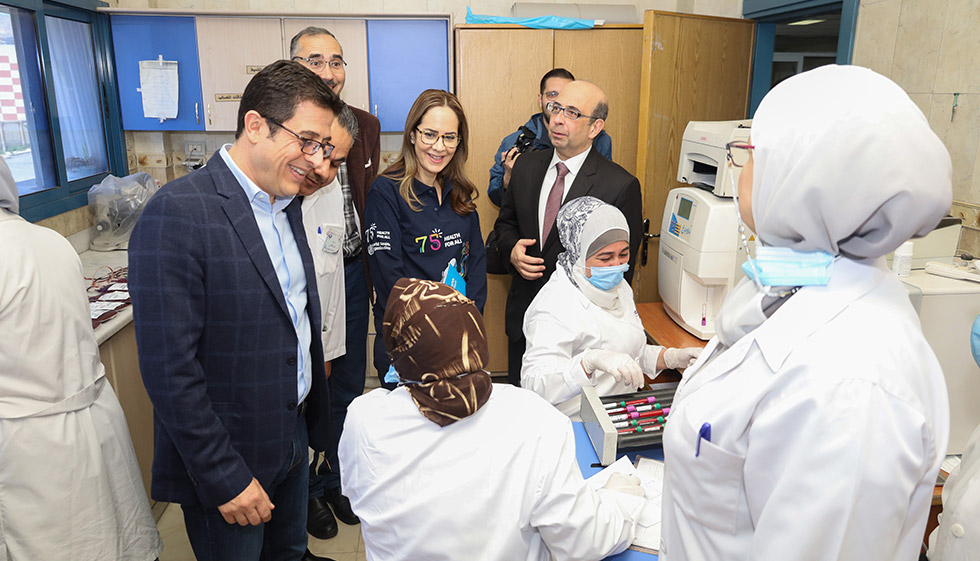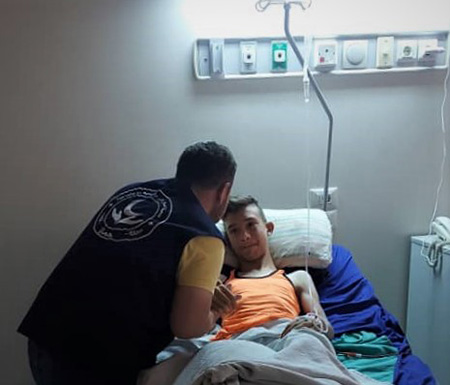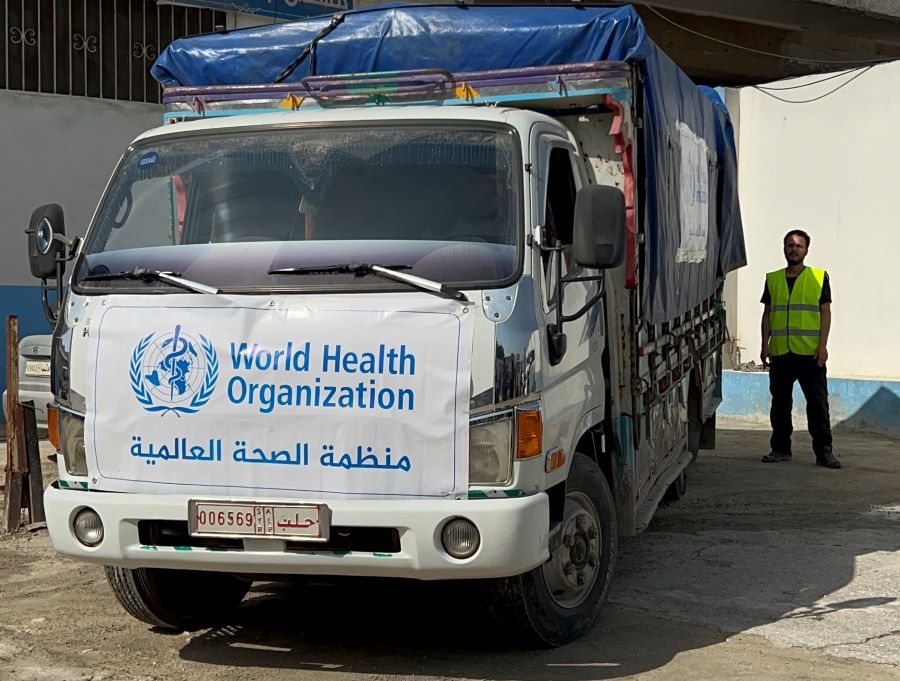 PHC services provided at a WHO-supported medical point in Latakia26 April 2023, Damascus – In the early part of this year, southern Türkiye and northern Syria were struck by a series of devastating earthquakes that caused widespread damage to homes and infrastructure. In Syria alone, the earthquakes affected a staggering 4 million people. Out of this number, around 2 million were severely impacted, and more than 200,000 individuals were forced to leave their homes across Aleppo, Hama, Latakia and Tartous governorates. According to the latest earthquake situation report by the World Health Organization , there is a continued and urgent need for assistance to help the affected communities in Syria.
PHC services provided at a WHO-supported medical point in Latakia26 April 2023, Damascus – In the early part of this year, southern Türkiye and northern Syria were struck by a series of devastating earthquakes that caused widespread damage to homes and infrastructure. In Syria alone, the earthquakes affected a staggering 4 million people. Out of this number, around 2 million were severely impacted, and more than 200,000 individuals were forced to leave their homes across Aleppo, Hama, Latakia and Tartous governorates. According to the latest earthquake situation report by the World Health Organization , there is a continued and urgent need for assistance to help the affected communities in Syria.
Access and availability of medication for chronically ill patients remains a primary concern. Outreach screening for tuberculosis (TB) at shelters has identified 42 new confirmed TB cases, while the increase of leishmaniasis cases is also of concern. Rubble and debris, as well as interrupted sanitation services, promote the breeding of sandflies and increase the risk of infection among people residing in shelters or make-shift arrangements where exposure can occur.
Furthermore, mental health needs continue to increase, with mental health and psychosocial support (MHPSS) remaining the most requested service. Hospitals in earthquake-affected areas are also reporting limited functionality due to a critical need for medical equipment and associated supplies and spare parts to enhance the capacity of operation theaters, intensive care units (ICUs), and diagnostics.
"The emergency health response continues to be led by the Ministry of Health (MoH) and in close coordination with the Directorate of Health (DoH) at governorate level. WHO remains committed to delivering essential health services and supplies to those affected by the earthquakes in Syria. Our emergency response is focused on key pillars such as leadership and coordination, continuity of essential health services, disease surveillance, and mental health support. WHO is working closely with our partners to ensure that the most vulnerable populations receive the care and resources they need," said Dr. Iman Shankiti, WHO Representative a.i to Syria.
Since the early hours following the first earthquake, WHO and its partners have made a significant impact on the ground in affected areas. Eighteen mobile medical teams (MMTs) have been deployed in Aleppo and Hama governorates, providing over 65,839 consultations and 850,528 treatments to people in need. The MMTs have covered 90 shelters and affected communities, ensuring that essential health services are accessible to those affected by the earthquake. WHO has also delivered essential medicines and supplies to 50 health facilities and public hospitals in earthquake-affected areas, with a total value of 3.61 million USD, sufficient to cover the needs of more than 340,000 beneficiaries. Additionally, WHO has continued to provide mental health and psychosocial support (MHPSS) services through its support to health facilities in Aleppo, Hama, Latakia, Tartous, and Rural Idleb, providing over 660,000 mental health services since the start of the response.
Despite the progress made so far, the ongoing needs of the affected populations cannot be overstated and the affected communities remain highly vulnerable to secondary effects, as well as any new emergency. We urge all concerned parties to provide the necessary support to the affected populations to alleviate their suffering and help them rebuild their communities. Together, we can make a difference and help those who need it most.
To support WHO’s response in Syria, please visit:
https://earthquakeresponse-turkiyesyria.who.foundation
For the latest information on the earthquakes, please see:
Earthquake interactive dashboard






 4 April 2023 ̶ Thanks to humanitarian funding of the European Union, 15-year-old Mohammad is once again a successful student with a dream to make a difference in the world by becoming a doctor who provides healthcare to those who need it most.
4 April 2023 ̶ Thanks to humanitarian funding of the European Union, 15-year-old Mohammad is once again a successful student with a dream to make a difference in the world by becoming a doctor who provides healthcare to those who need it most.
